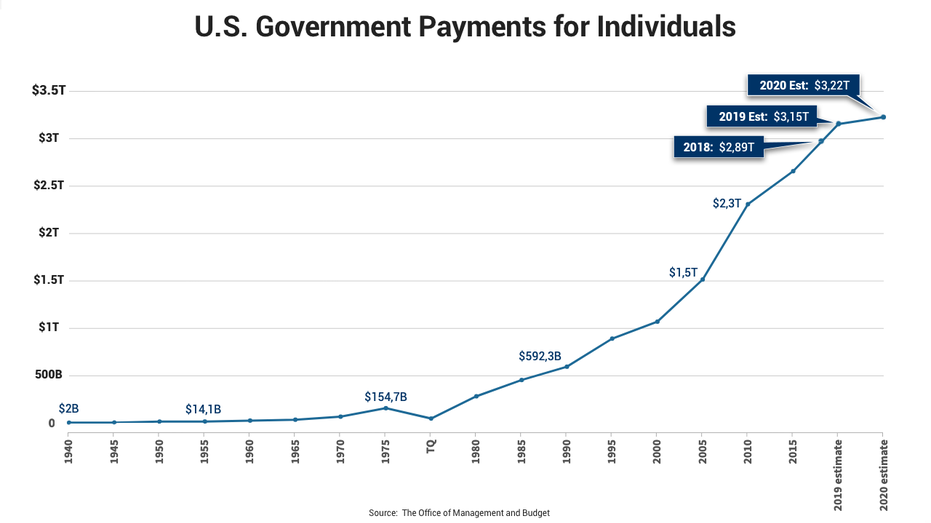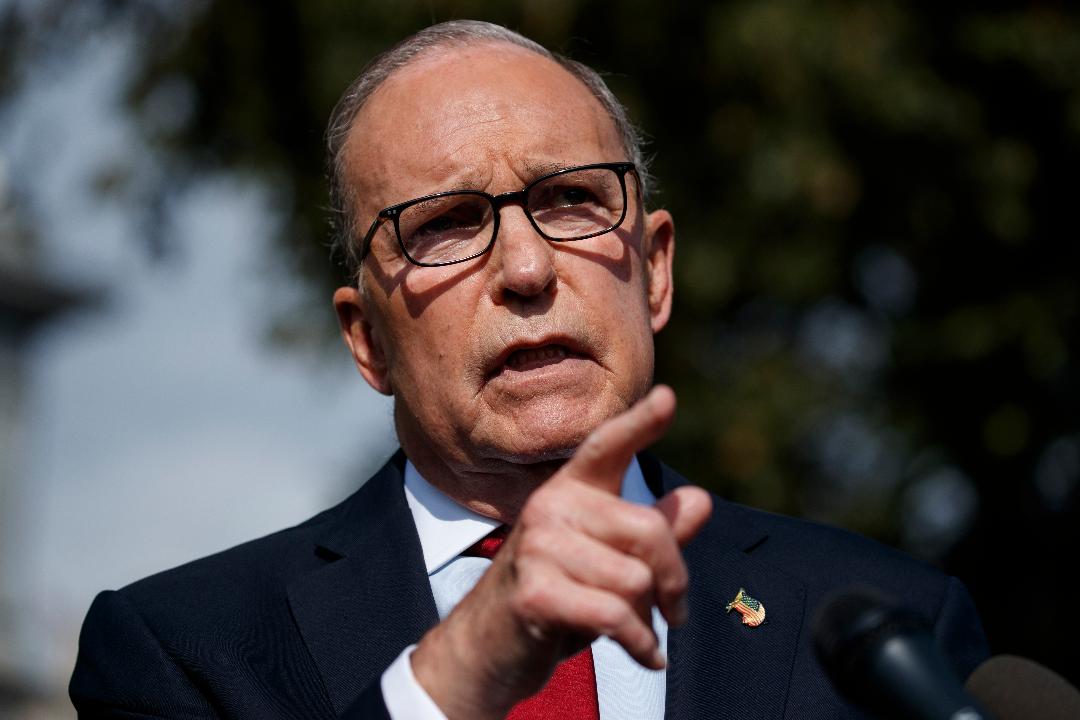The $3.2 trillion 'cancer cell' that could kill US economy
America's welfare state is booming.
Transfer payments, which include Social Security, food stamps as well as Medicare and Medicaid, from the U.S. government to Americans are set to reach a record $3.22 trillion during fiscal year 2020, which began on Oct. 1. They totaled just over $1 trillion at the turn of the millennium, according to the Office of Management and Budget.

A transfer payment is money that has been paid to an individual who has not performed any service or rendered any goods for it. These payments are projected to make up 67.9 percent of government outlays and take up 14.4 percent of GDP this year, according to OMB.
“We've been a nation defined by people being entitled to government money, and that is the kind of cancer cell that could kill our economy,” Stephen Moore, an economist at the conservative think tank The Heritage Foundation, told FOX Business.
GET FOX BUSINESS ON THE GO BY CLICKING HERE
He says there are two factors contributing to the ballooning size of transfer payments in America.
The first, and by far the biggest, is the country’s aging population. There are 80 million Baby Boomers who are retiring at a rate of about 10,000 per day and that’s putting “enormous stress on the social service functions of government,” Moore says, adding that the other factor is the “gigantic increase in the dependency of government.”
One example is the surge in food stamps in the wake of the 2008 financial crisis.
"The thing about SNAP is that it does exactly what it's supposed to do, which is reduce food insecurity," Elaine Waxman, senior fellow at The Urban Institute, told FOX Business.
She added that the SNAP, or the Supplimental Nutrition Assistance Progam, also acts as an economic stimulus by putting those resoucres back into the community in a timely way by helping pay the salaries of cashiers, stockers, growers and farmers.
The Trump administration has run into resistance as it has attempted to scale down the program, which is currently providing benefits to more than 21 million Americans, according to the private policy analysis firm Mathematica.
An August letter from 70 mayors of U.S. cities urged President Trump to abandon his plan to cut down on the number of Americans receiving food stamps, saying the plan would "harm our economy." The president's plan to close a "loophole" would save the government $2.5 billion.
"The reality is that capitalism is filled with ups and downs," Waxman said. "And so we we need some type of safety net program to be countercyclical. And when the cycle is really rough, like it was in the Great Recession, it takes a long time to dig back out."
While transfer payments are projected to reach $3.8 trillion by 2024, they would likely balloon by a lot more if Sens. Elizabeth Warren or Bernie Sanders reach the Oval Office. Both senators have called for massive government spending in their support of programs like the Green New Deal, Medicare for all, student-loan forgiveness and reparations payments.
“You're talking about potentially not trillions, but potentially tens of trillions of dollars of additional costs over the next couple of decades,” Moore warned.
CLICK HERE TO READ MORE ON FOX BUSINESS
“We need to recognize as a nation that everyone can't be entitled to everyone else's money,” he concluded.




















